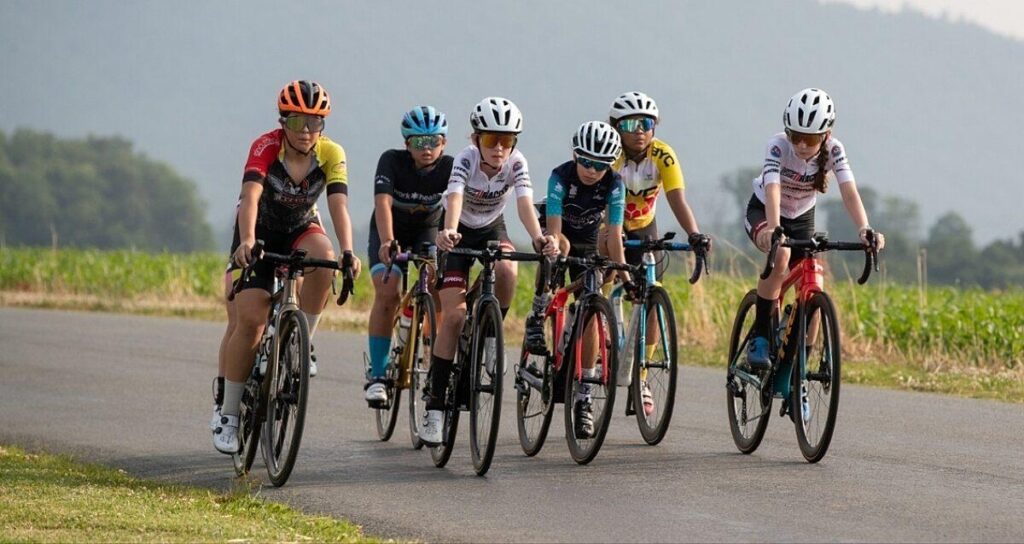As the 2023 World Championships approach, U.S. junior cyclists are confronting a staggering $4,000 price tag to compete on the global stage, sparking concerns about accessibility and the future of American cycling talent. This financial burden, which includes travel, lodging, and equipment costs, poses a significant barrier for many young athletes and their families. In a bid to alleviate this daunting expense, former World Champion Megan Jastrab has emerged as a vocal advocate, rallying support from the cycling community and beyond. With the stakes higher than ever, Jastrab’s efforts underscore the critical need for greater investment in youth sports and the long-term viability of the U.S. cycling pipeline.
US Juniors Confront Financial Burden to Compete at World Championships
The financial challenges faced by young athletes aiming to compete at the World Championships have reached a new level of concern, with many U.S. juniors confronted with a staggering cost of approximately $4,000. This significant sum includes expenses related to travel, lodging, equipment, and entry fees, which can deter promising talents from pursuing their dreams. In an effort to alleviate this burden, former World Champion Megan Jastrab has stepped up to rally support, advocating for sponsorships and community fundraisers. Her initiative seeks not only to raise necessary funds but also to bring attention to the sacrifices made by these young competitors striving for excellence on the global stage.
To illustrate the potential financial gap, here’s a breakdown of expected costs that juniors might incur:
| Expense Category | Estimated Cost |
|---|---|
| Travel (flights, local transport) | $1,200 |
| Lodging | $800 |
| Equipment (gear, maintenance) | $1,200 |
| Entry Fees | $400 |
| Food & Miscellaneous | $400 |
With this high cost of participation, many juniors are relying on local clubs and organizations to provide support networks. Community efforts led by Jastrab highlight the critical need for resources that encourage youth athletes not only to compete but to thrive in high-stakes environments. Her call to action emphasizes the importance of investing in our juniors today to cultivate the champions of tomorrow, ensuring no talent goes unnoticed due to financial constraints.
Former Champion Megan Jastrab Advocates for Increased Support and Resources
In a heartbreaking revelation, junior athletes across the United States are facing exorbitant costs of approximately $4,000 to participate in the prestigious World Championships. This staggering financial burden is prompting former World Champion Megan Jastrab to take a stand and advocate for increased support and resources for young competitors. As she champions their cause, Jastrab underscores the vital importance of nurturing the next generation of athletes and ensuring that talent is not stifled by economic constraints. Many aspiring champions have dedicated years of hard work and perseverance to reach this pivotal stage in their careers, and yet, are unable to participate due to the financial hurdles involved.
Megan is pushing not only for funding but also for a comprehensive support system that encompasses various aspects of training and competition. She believes that young athletes should have access to essential resources, including coaching, training facilities, and travel assistance. Among the key proposals she is advocating for are:
- Increased Financial Aid: Help athletes afford competition fees and travel expenses.
- Enhanced Sponsorship Opportunities: Foster partnerships with local businesses and organizations.
- Community Fundraising Initiatives: Encourage local teams and communities to rally around their athletes.
While Jastrab’s call to action aims to shed light on the financial obstacles faced by many juniors, she remains hopeful that collective efforts will lead to tangible changes. “It’s not just about winning; it’s about making sure every talented athlete has the chance to chase their dreams without the weight of financial burden,” she stated. By rallying support from both the public and private sectors, Jastrab envisions a brighter future for Junior athletes across the nation, ensuring that their paths to success are powered by support rather than financial limitations.
Addressing the Funding Gap: Recommendations for Supporting Junior Athletes
To effectively address the financial barriers facing junior athletes aspiring to compete on the global stage, multiple strategies need to be initiated. Key stakeholders, including sports organizations, sponsors, and local communities, should collaborate to create a comprehensive funding model that is both sustainable and accessible. Establishing community grant programs could significantly alleviate costs by providing financial assistance to those in need. Additionally, creating partnerships with local businesses and corporations can open up avenues for sponsorship that directly aid individual athletes, thereby fostering a supportive environment for our future champions.
Implementing a structured, transparent scholarship program is essential. Such a program could focus on merit-based and need-based funding, ensuring that talented athletes, regardless of their economic background, have equal opportunities. Moreover, facilitating fundraising events-like charity races and competitions-can engage the community and raise awareness about the importance of supporting these young athletes. It’s crucial for established athletes, such as Megan Jastrab, to lead these initiatives by sharing their journeys and encouraging participation, thus inspiring a culture of giving back to the sport.
To Conclude
As the U.S. junior cycling team prepares for the upcoming World Championships, the financial burden of approximately $4,000 per athlete casts a shadow over their aspirations. Former World Champion Megan Jastrab’s call to action highlights not only the challenges faced by these young competitors but also the spirit of unity and support within the cycling community. Advocacy for financial assistance and sponsorship is more crucial than ever, as these dedicated athletes strive to represent their country on a global stage. As the wheels turn towards the World Championships, the hope is that increased support will not only alleviate costs but also empower these juniors to chase their dreams with the resources they need. The road ahead is steep, but together, there is a strong push to ensure that talent and determination are the only barriers to success.










